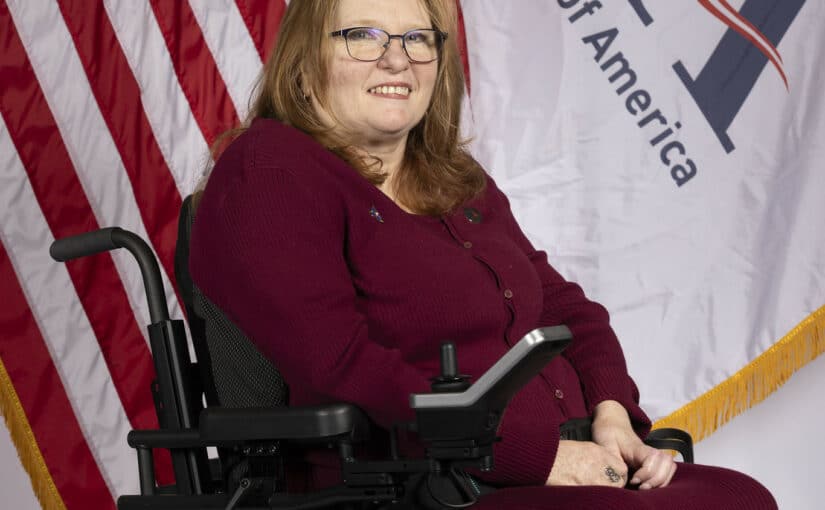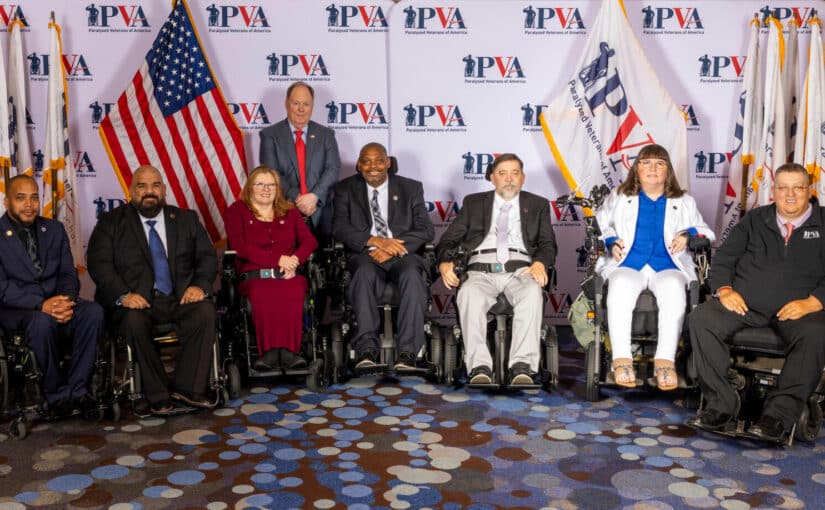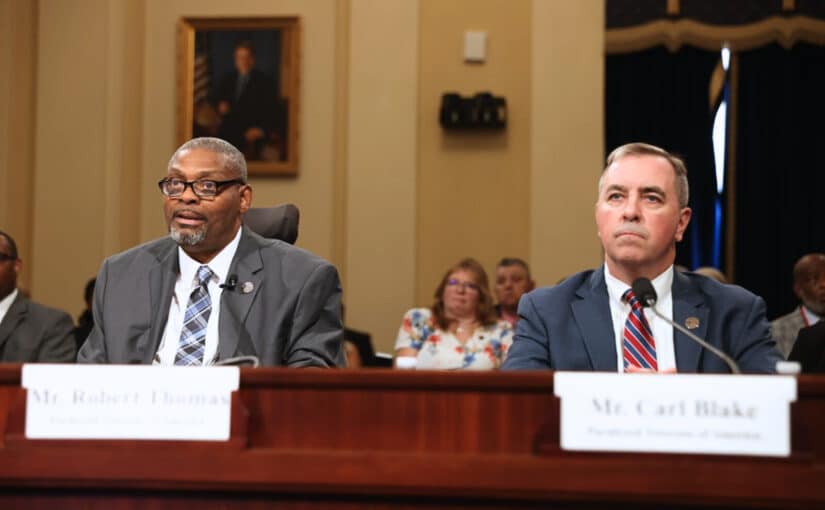About the Grants
Paralyzed Veterans of America’s Research Foundation Board of Directors met on November 13, 2020, to decide which candidates would be the best deserving of the Foundation’s annual awards.
The Foundation received 83 total applications nation-wide. Out of the 83, the Foundation awarded five grants to recipients whose work excelled in the areas of spinal cord injury/disease, including respiratory issues within SCI, pressure injury risk, and determining driving capability in persons living with SCI, as well as other topic areas.
The grants are awarded for a two-year period; the grant cycle beginning on January 1, 2021.
This year, the Foundation awarded a total of $746,293 in grants.
The grants for FY2021 are funded in three categories: basic science, clinical applications, and design & development.
2021 Grant Recipients
Promoting Colonic Peristalsis after Chronic Spinal Cord Injury with Closed-loop Electrical Stimulation
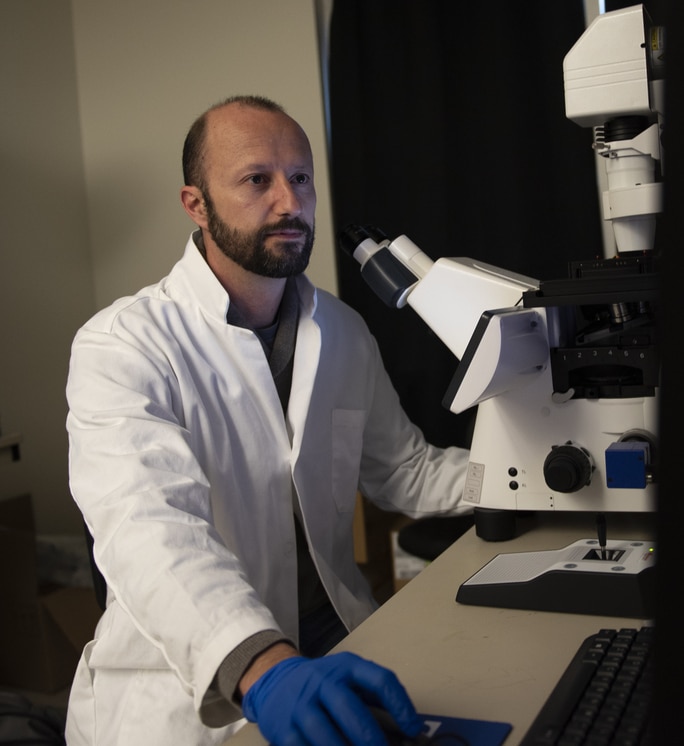
Dr. Cedric Geoffroy, Texas A&M University
Grant Awarded: $150,000
Project Summary: Neurogenic bowel dysfunction (NBD) induces several health complications and severely decreases the quality of life of persons with spinal cord injury (SCI). The current care management options for the NBD have limited effectiveness and often require help from caregivers.
The aim of this project is to develop a novel electrical stimulation system to directly enhance the colon activity and strengthen the mass peristalsis, movements responsible pushing the contents of the large intestine (colon) down. Our team will use implantable electrodes and tethered electronics, to monitor the colonic activity in a real-time manner and stimulate the colon wall in mice awake and freely moving. This will demonstrate the translational potential of implantable devices to treat bowel dysfunction after chronic SCI.

Sleep Disordered Breathing after Cervical SCI
Dr. Tatiana Bezdudnaya, Drexel University College of Medicine
Grant Awarded: $150,000
Project Summary: LSpinal cord injuries at the neck level often lead to impaired breathing. Some spontaneous recovery can be seen with time, but deficits may persist throughout life or even become worse with age. One such deficit is sleep-disordered breathing (SDB), which is associated with many additional negative side-effects, and can interfere with rehabilitation and recovery. The causes of SDB and ways to prevent or treat it are not known. Accordingly, there is an urgent need for more pre-clinical studies to better understand SDB and develop treatments to improve function. The proposed work will study SDB in a rodent model of spinal cord injury and test whether treatment with a novel drug called ‘ampakines’ can activate the injured spinal networks controlling breathing, improve recovery and reduce the SDB. These new studies may help to reveal new treatments for people with high spinal cord injury and significantly improve their quality of life.
The Utility of Clinical Measures for Determining Driving Capability Following Spinal Cord Injury
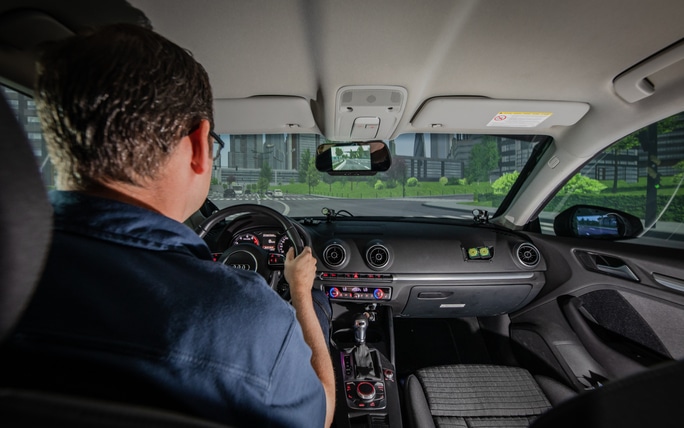
Dr. Anthony Burns, Toronto Rehabilitation Institute- University Health Network
Grant Awarded: $146,340
Project Summary: Spinal cord injuries (SCI) are catastrophic events and adapting and adjusting to SCI is challenging. Driving can facilitate independence and improve quality of life for individuals living with SCI. Losing a driving license can be a source of significant stress and an important barrier to community reintegration. Currently, there is little information to guide decision-making and help determine driving ability. This is particularly true for individuals with incomplete SCI where there is some preservation of movement and sensation. This study will (1) improve our understanding of how physical impairments affect driving ability following SCI, and (2) establish objective screening criteria, which predict driving performance and safety. This will be accomplished using Toronto Rehab’s DriverLab, the most advanced driving simulator in Canada and unique in the world. Study results are essential to ensuring public safety while balancing the need to return to driving and community reintegration following SCI.
Pressure Ulcer Modifiable Risk Identification Using Blood Flow Marker and Metabolic Biomarkers in People with SCI

Dr. Yi-Ting Tzen, UT Southwestern Medical Center
Grant Awarded: $147,503
Project Summary: People with spinal cord injury (SCI) are at high risk of developing pressure injuries (pressure ulcers). While the commonly used clinical manifestations of SCI could determine this population as high risk of ulceration, factors that affect an individual’s risk of pressure injuries are not yet fully explored. The purpose of this project is to identify modifiable risk factors associated with recurrent pressure injuries in individuals with SCI. The potential factors that aggravate a person’s risk of ulceration includes microvascular dysfunction and metabolic inflexibility. We hypothesize that diminished skin blood flow regulation, increased insulin resistance, and decreased plasma adiponectin level predispose an individual with SCI to recurrent pressure injuries. Findings of this study may provide evidence of selecting and implementing strategies that improve the individual’s microvascular function and metabolic flexibility in addition to current standard of care for pressure injury prevention.
Development and Community Testing of an Internet of Things Device for Predicting Wheelchair Failures and Guiding Maintenance

Dr. Anand Mhatre, University of Pittsburgh Grant Awarded: $149,953
Project Summary: Frequent wheelchair breakdowns and resulting injuries affect the health and quality of life of millions of wheelchair users. Preventative wheelchair maintenance is key to reduce breakdowns and associated user consequences. In this study, the researchers at the University of Pittsburgh are developing and testing an Internet of Things technology called WheelTrak that can track wheelchair usage in the community and predict failures. WheelTrak alerts users and caregivers when preventative maintenance is due based on their wheelchair usage thereby preventing breakdowns and consequences.


